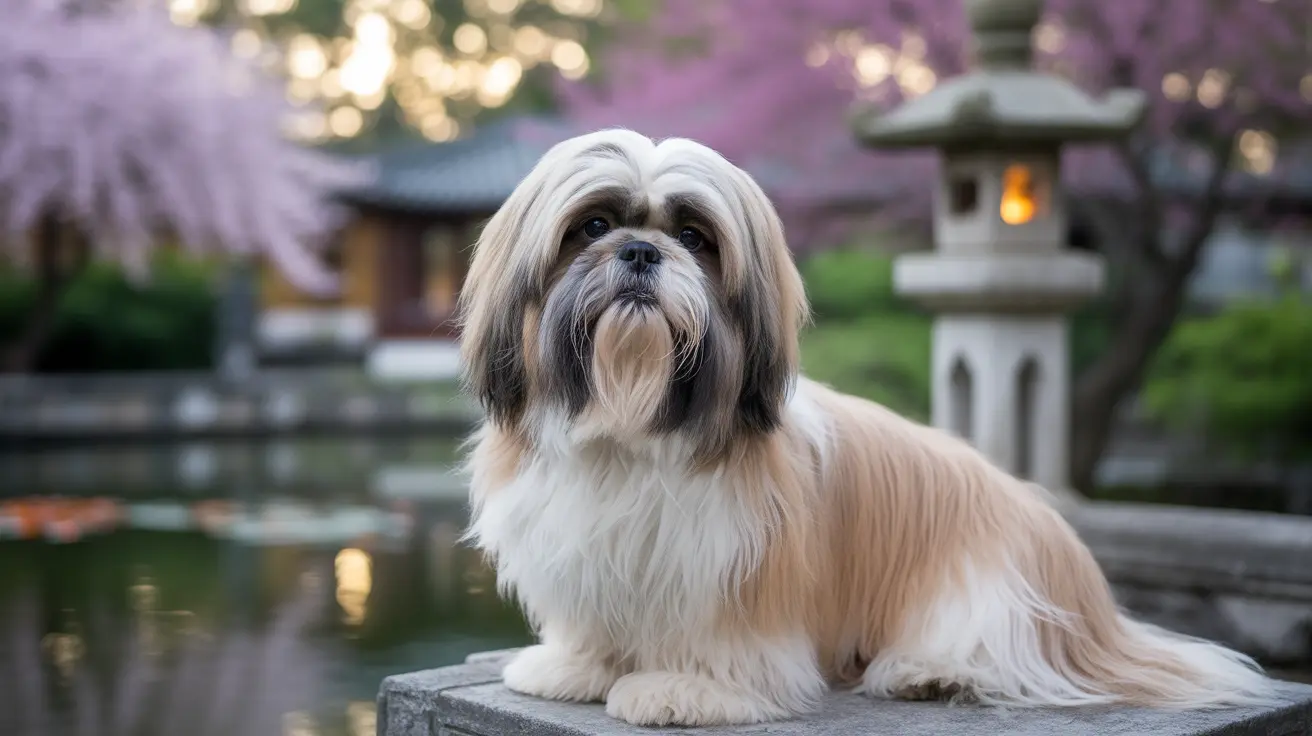The Shih Tzu, an ancient breed with a rich imperial heritage, continues to captivate dog lovers worldwide with its distinctive appearance and charming personality. From their humble beginnings in Tibetan monasteries to their elevated status in Chinese imperial courts, these small but mighty dogs have a fascinating history that spans over a millennium.
In this comprehensive guide, we'll explore everything you need to know about these beloved companions, from their royal origins to their modern-day care requirements. Whether you're a current Shih Tzu owner or considering adding one to your family, you'll discover why these "little lions" have maintained their popularity throughout the centuries.
The Royal History of the Shih Tzu
Originally developed in Tibet and later refined in China, Shih Tzus boast an impressive lineage dating back over 1,000 years. These dogs were created through careful breeding between Lhasa Apsos and Pekingese, resulting in the compact, distinctive appearance we know today.
During the Ming and Manchu Dynasties, Shih Tzus were exclusively bred and maintained by Chinese royalty, with the Dowager Empress Cixi implementing a dedicated breeding program. The name "Shih Tzu" translates to "Little Lion" in Mandarin, reflecting their association with Buddhist mythology.
Physical Characteristics and Appearance
Shih Tzus typically weigh between 9-16 pounds and feature a distinctive double coat that can come in various colors and patterns. Their most notable features include:
- A short, wide muzzle with a pronounced underbite
- Large, round, expressive eyes
- A high-set tail that curves over their back
- A flowing double coat requiring regular maintenance
- The characteristic "chrysanthemum face" pattern
Temperament and Personality Traits
Known for their affectionate and friendly nature, Shih Tzus make excellent family companions. They typically display:
- Strong bonds with family members
- Good behavior around children and other pets
- Alert but not excessive barking tendencies
- Self-confident personalities
- Adaptability to various living situations
Health and Longevity
Shih Tzus generally enjoy a lifespan of 10-16 years, with some reaching up to 18 years. However, they are prone to certain health conditions that owners should monitor:
- Brachycephalic airway syndrome
- Eye conditions and infections
- Dental and periodontal disease
- Patellar luxation
- Intervertebral disc disease
Essential Care and Maintenance
Proper care is crucial for maintaining a healthy and happy Shih Tzu. Key aspects include:
- Daily brushing and regular professional grooming
- Moderate exercise (20-30 minutes daily)
- Regular dental care and cleaning
- Protection from extreme temperatures
- Proper portion control to prevent obesity
Frequently Asked Questions
What is the history and origin of the Shih Tzu breed?
The Shih Tzu originated in Tibet and was later refined in China, where they became treasured companions of Chinese royalty. Their history dates back over 1,000 years, and they were created through breeding between Lhasa Apsos and Pekingese.
How long do Shih Tzus typically live, and what affects their lifespan?
Shih Tzus typically live 10-16 years, with some reaching 18 years. Their lifespan is influenced by genetics, preventive healthcare, diet, and regular exercise. Quality veterinary care and proper nutrition can help maximize their longevity.
What are the common health issues Shih Tzus face, especially related to their flat faces?
As a brachycephalic breed, Shih Tzus commonly face breathing difficulties, especially in hot weather. They're also prone to eye problems, dental issues, patellar luxation, and intervertebral disc disease. Regular veterinary check-ups are essential for monitoring these conditions.
How should I properly groom and care for my Shih Tzu's coat and overall hygiene?
Shih Tzus require daily brushing to prevent matting, professional grooming every 4-6 weeks, and regular cleaning of eyes and ears. Many owners opt for a shorter "puppy cut" for easier maintenance. Daily dental care is also crucial for preventing periodontal disease.
What is the typical temperament of a Shih Tzu, and are they good with children and other pets?
Shih Tzus are known for being affectionate, friendly, and loyal companions. They generally do well with children and other pets, thanks to their patient and tolerant nature. While confident, they can be somewhat stubborn, making consistent, gentle training important from an early age.






